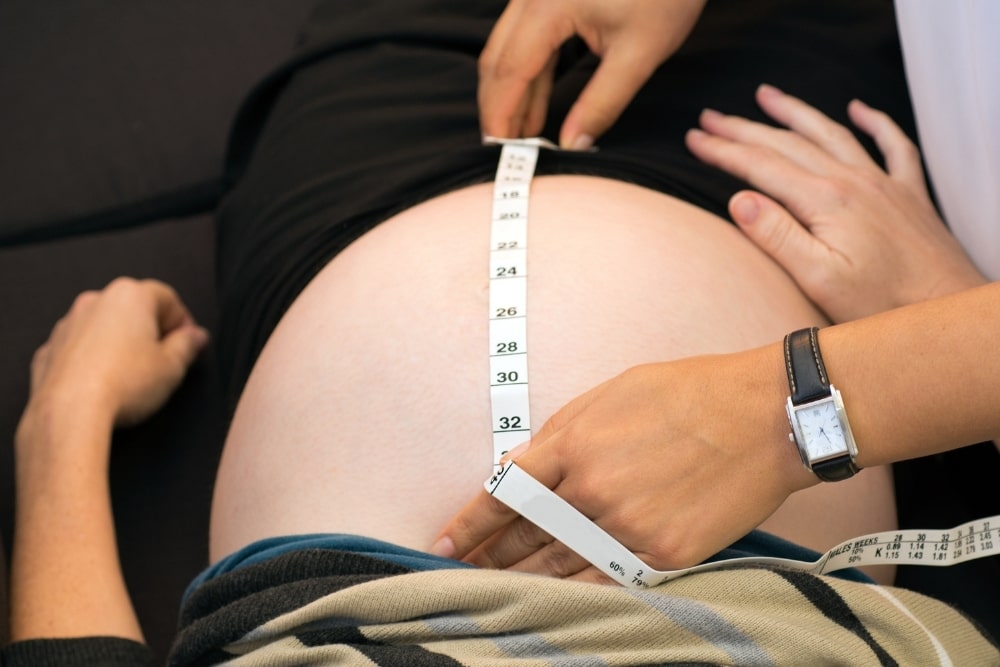You have now come to terms with the fact you are pregnant. Congratulations! It is starting to feel more real every day and at this time there is one person an expectant mom can rely on and that is her midwife.
But this can unleash a lot of fears, misconceptions, and worries in the build-up to that first meeting.
Everyone talks about how amazing their midwife is or how they wished they had gone with someone different.
It is important to remember that you are paying for a person to guide you through the most spectacular time of your life so building a bond and sometimes friendships can help you to relax throughout the process.
Ultimately they could be the very first person to see and hold your darling baby, not to mention be a scaffold of support for you during these crazy hormonal times.
With this in mind, we have put together some important questions to ask a midwife to help put your mind at rest.
First Meeting With Your Midwife
The time has come, you are on your way to meet your midwife for the first time. This is making your pregnancy seem a little more real and you may have some nerves about what to expect.
Will they be nice? Are they professional? Will they be qualified enough to deal with any outcome?
Having these questions ping around in your head is completely normal in these first few weeks and you want to make sure you have the right person for the job!
Questions To Ask
- How long have you been practicing for?
- What is your training?
- How many appointments will I have?
- What are your fees?
- How do I contact you?
- What should I expect?
- Should I make any lifestyle changes?
- How many scans do I have?
These are questions your midwife should answer without you having to ask, however many midwives have been on the job for years so don’t feel awkward if one of your questions hasn’t already been covered, just ask they won’t mind.
Midwife training is an important factor to consider, at the end of the day, they are going to be your main guru throughout this enormous life change.
It is vital that you understand who and what you want from your midwife as there are many different certified credentials, such as CNM, CM, or CPM.
View in gallery
CNM – Certified Nurse-Midwives have completed their training courses as well as their nursing. Hospitals are their routine place of work.
CM – Certified Midwives complete their training without the nursing aspect. So whilst these individuals are qualified they would have completed a direct to midwifery course rather than nursing first.
CPM – Certified Professional Midwives complete the rigorous training as the staff above but they have a more hands-on stance in the community.
Experienced at delivering babies in and out of hospital settings, this may be the way you want to head if you are planning a home birth. It is also vital to clarify what lifestyle changes you need to make.
You have the obvious toxins such as, tobacco use, drugs, and alcohol but your midwife should be talking to you about what foods will benefit and help you through your pregnancy and also any vitamins that will help your little one develop.
Meeting your midwife is an exciting first step in your pregnancy journey. Whilst it is their job, your midwife will become an important role and friend throughout.
Meeting Your Midwife At 24 Weeks
Usually, at this point you would have had your dating scan, around 12 weeks, giving you a better indication of how far you are in your pregnancy. It is at 24 weeks you can meet your midwife again and touch base about any concerns you may have and how you are feeling.
Question To Ask In This Appointment
- What tests should I expect at this point? Glucose? Bloods?
- How big am I measuring?
- Can I hear the heartbeat?
- When should I visit my chosen birthing place?
- What antenatal classes are there?
- How long should I work for?
It is important that you be honest with your midwife and express any concerns or pains at this point. Pregnancy changes your body in extreme ways and if this is your first pregnancy then every little niggle no matter how small is a big deal for you.
Your midwife should be understanding of this and help to settle your fears. They should be able to complete the necessary growth checks at this appointment.
If your midwife feels you need more tests done to rule out any concerns then always ensure that it is included in the cost as you don’t want to receive a surprise bill at the end!
View in gallery
Antenatal classes are an important role when becoming a parent. Whether it is for the first time or not these classes, if you choose to participate, can be invaluable for supporting you after the baby has arrived.
Your midwife should be able to point you in the right direction for these.
Working whilst pregnant is dependent on what you do for a living. Your midwife may ask you about any particular health and safety risks or precautions your employer is considering whilst you are still at work.
Essentially, how long you work will be your choice, be it at a financial decision or a health-related issue many moms find that they want to try and work for as long as possible. This way they can appreciate the time off more when their baby is born.
Meeting your midwife at 28 weeks
By this point you are heading towards your third trimester, the home stretch is in sight. For 28 weeks you have been checking every movement, every pain, to ensure your baby is growing healthy. At this point, your focus may be shifting to the delivery.
Questions To Ask At This Appointment
- What symptoms should I expect at this stage of pregnancy?
- Is my weight gain normal?
- When should I start thinking about my birthing plan?
- When do I worry about pregnancy-related disorders – preeclampsia?
- How can I treat back pain?
The fact you are now carrying an extra load can have extra pressures on your body. Your midwife should be able to go through the symptoms of this trimester and suggest ways to make you feel more comfortable.
From heartburn remedies to elevating your puffy ankles and feet. There are many ways you can alleviate the pressures of third-trimester symptoms. Just remember to ask!
Your midwife may have been keeping an eye on your weight and fundal height throughout your pregnancy.
This is to rule out anything pointing to gestational diabetes and to ensure that your expanding belly is within the normal range for the stage of pregnancy.
It was at this stage my midwife found I was measuring two weeks ahead with my daughter and when she discussed this with me we both agreed to have another scan just to check on my baby’s growth.
View in gallery
Rest assured she had an early growth spurt!
Your birthing plan may come into the conversation in this meeting. Time to think about where what, and who you want there for the birth. Your midwife can go through your options regarding pain relief and locations.
They may also discuss that your birthing plan is a rough guide of what you wish to happen.
Lord knows that sometimes our bodies and unborn children have minds of their own and may warrant for things to happen in different ways to what you have imagined.
With this in mind, you may want to plan for events in an emergency, but this is only as a precaution.
As you grow you may be finding your back pain unbearable, don’t suffer in silence your midwife has probably seen loads of women in the same place as you and can suggest easy and helpful tips to ease the pain.
At the end of your pregnancy
Near the end of the pregnancy you may be filled with excitement, nerves, and many moms can fear the storm (labor) before the rainbow! It is important you talk about these feelings and allow yourself to transition into the final stage of pregnancy.
Question To Ask
- Who do I contact if I think labor is starting?
- What pain relief will I have immediate access to?
- Is my baby in the correct position?
- What happens if my labor slows down?
- What are the reasons for a hospital transfer?
- What care will me and my baby get after the birth?
At this point giving birth can be imminent. It is important by this point to have your hospital bag ready with all your wishes and hopes in toe. This appointment is where your midwife can give you the things to look out for if you think you are going into labor.
You should have some knowledge of the pain relief you want and your midwife can be prepared for this as you would have it stated in your birthing plan.
View in gallery
For weeks you have been kicked, punched, and stopped in your tracks with your baby’s movements. It is clear that he/she is running out of room. If not already done, remember to ask about your baby’s position.
An ideal position would be your baby’s head down in your pelvis, facing your back. Any other position and your midwife may discuss turning your baby to encourage a good position for delivery.
In some circumstances, babies don’t play by the rules and remain in other positions, such as feet first. If faced with this your midwife may suggest a cesarean section for the health of your baby during delivery.
After the birth, you may feel a bit daunted about the new role you are taking on. You have the care and safety of another actual life! A little person who will depend on you for years to come!
As it stands you may not have this at the forefront of your mind but it could be a good idea to ask your midwife what happens afterward.
How many times you see your midwife after the birth can vary and many times they will come back and visit you in your home just to check on you both and ensure that baby is well and you are recovering.
FAQs
Why do I need to ask my midwife questions?
Questions and answers can help boost your confidence when progressing through pregnancy and labor. Having a midwife answer any questions you have can help make you feel comfortable as you progress through the trimesters. As well as give you confidence in your midwife.
When do I see my midwife?
If you are well and healthy the normal time you would expect to see your midwife would be at around 10 weeks. It is at this appointment they can book you on ready for a dating scan at 12 weeks.
What do I need to know about midwifery care?
Midwifery care is based on you as a woman and centered with your best interests at heart. It is normal for a pregnant lady to lean on their midwife for emotional and physical support.
The Final Thought
Every woman wants a positive birthing experience. This is a time you will never forget, a time where your life changed forever. It doesn’t hurt to be a ‘nagging Nancy’ with all your questions.
You will feel better prepared and focused on the job at hand. Your midwife is there for anything you need. It is vital that you choose the right person for the job!






